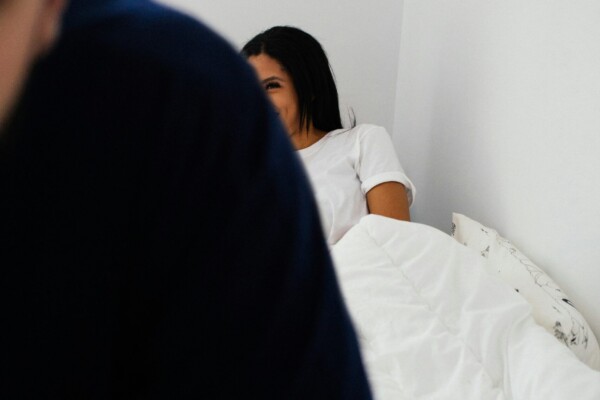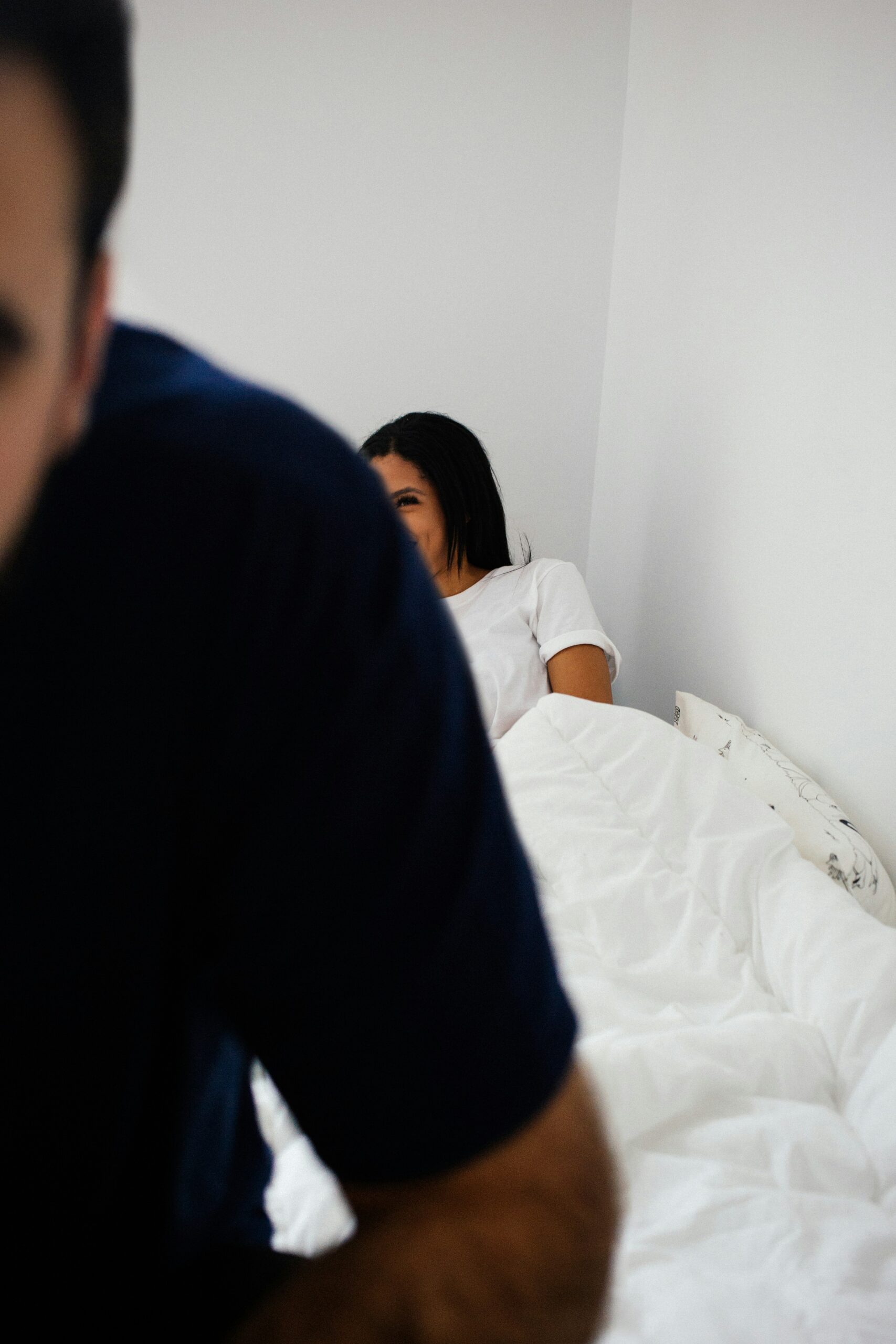Understanding the Connection Between Weather and Libido
The relationship between weather and libido is an intriguing topic that intertwines both scientific and psychological elements. Research has indicated that various weather conditions can significantly impact an individual’s sexual desire. For instance, temperature variations play a crucial role in libido levels. Warmer temperatures have been associated with increased sexual arousal. This phenomenon can, in part, be attributed to physiological responses triggered by heat, such as elevated blood flow and greater exposure of the skin, which may enhance sensual experiences.
Humidity also influences libido, albeit in a more complex manner. High humidity can result in discomfort, potentially leading to decreased sexual desire. Conversely, mild humid conditions might create an atmosphere that increases intimacy and romantic feelings. Moreover, natural elements, such as sunlight, are known for their profound effects on mood and overall well-being, largely due to the production of serotonin and its subsequent impact on libido. Longer days and sunshine during summertime can lead to heightened energy levels and an improved mood, thereby fostering an environment conducive to heightened sexual desire.
Seasonal changes further contribute to fluctuations in libido. The change from winter to spring often leads to a resurgence in sexual desire, as people emerge from the dormancy of colder months and are exposed to the allure of new life and growth. Additionally, psychological factors cannot be overlooked. Many people associate certain weather conditions with mood states; for example, rainy days may evoke feelings of coziness and intimacy, potentially enhancing libido. Understanding these connections helps clarify why individuals might experience varying levels of desire based on the weather, allowing for a better approach to maintaining a healthy sexual life irrespective of changing climates.
Mood Changes and Their Influence on Sexual Desire
The interplay between weather conditions and mood changes significantly impacts libido. Various studies indicate that weather can trigger emotional responses that either enhance or inhibit sexual desire. For instance, during overcast months, individuals often experience Seasonal Affective Disorder (SAD), a condition characterized by low energy levels, feelings of hopelessness, and diminished sexual interest. The absence of sunlight can lead to an imbalance of serotonin and melatonin, hormones directly related to mood regulation and energy levels. Consequently, when sadness prevails, sexual desire may diminish considerably.
Conversely, sunnier days are associated with heightened moods and increased vitality. Exposure to sunlight facilitates the production of serotonin, leading to feelings of happiness and contentment. This enhanced mood can contribute to an increased interest in sexual activity, as individuals feel more energetic and confident. A significant correlation exists between mood elevation during pleasantly warm weather and heightened sexual desire, as improved emotional states often lead to increased intimacy and connection between partners.
Additionally, it is essential to recognize that emotional well-being plays a crucial role in one’s sexual health. Engaging in activities that promote mental health, such as regular exercise, maintaining a balanced diet, and developing strong social connections, can mitigate the adverse effects of weather-related mood changes on libido. Implementing stress management techniques such as meditation or mindfulness can also help maintain a stable emotional state, allowing individuals to navigate fluctuations in desire that might be influenced by external weather conditions.
Ultimately, being proactive about mental health can serve as a buffer against the detrimental effects of unfavorable weather on sexual desire while promoting a more fulfilling sexual experience regardless of seasonal variations.
Practical Tips for Enhancing Libido in Varying Weather
Maintaining a healthy libido can be tricky due to the fluctuations brought on by different weather conditions. However, by incorporating certain strategies into daily habits, individuals can bolster their sexual desire regardless of seasonal changes. One effective approach is to engage in regular physical activity. Exercise has been shown to improve circulation, enhance mood, and increase energy levels, all of which contribute positively to libido. During warmer months, outdoor activities such as hiking, biking, or swimming can be particularly invigorating, while indoor workouts or yoga are excellent options for colder seasons.
In addition to physical activity, a balanced diet plays a crucial role in supporting libido. Foods rich in vitamins and minerals such as fruits, vegetables, whole grains, and lean proteins should be prioritized. These foods help sustain energy levels and improve overall health, which directly affects sexual wellness. Incorporating foods known for boosting libido, such as avocados, nuts, and dark chocolate, can also create a more favorable environment for desire.
Staying hydrated is another essential element in this equation. Adequate water intake is vital for overall health and can significantly impact physical functions. During hotter weather, it is imperative to increase fluid consumption to combat dehydration and maintain energy. Conversely, during the winter months, warm herbal teas can help retain warmth and comfort while providing hydration.
It is equally important to keep mental health in focus. Mindfulness practices, such as meditation and deep-breathing exercises, can alleviate stress and enhance body awareness, fostering a healthy connection between the mind and body. Strengthening relationships through communication and quality time together can also enrich intimacy, making it easier to navigate the challenges posed by changing weather. By implementing these strategies, individuals can actively work toward enhancing their libido throughout the seasons.
When to Seek Help: Recognizing Underlying Issues
Changes in libido can be influenced by various factors, including environmental conditions like weather, personal circumstances, and overall health. However, fluctuations that seem atypical or prolonged may warrant deeper investigation, especially if they correlate with distress or negatively affect one’s quality of life. Recognizing these signs is crucial for determining when it is appropriate to seek professional help.
One primary indicator that it may be time to consult a healthcare professional is if there has been a sudden and significant change in libido, particularly if this shift persists longer than a few weeks. A noticeable decrease or increase in sexual desire can sometimes point to underlying healthcare issues, whether they are physical, such as hormonal imbalances or chronic illness, or psychological, including stress, anxiety, or depression. These mental health challenges can certainly be exacerbated by environmental factors, including seasonal affective disorder that arises during gloomy months.
Additionally, if changes in libido are accompanied by other symptoms such as fatigue, mood swings, or physical discomfort, it is advisable to seek the guidance of a healthcare provider. Engaging in open dialogue about these issues can help identify possible hormonal or psychological roots. Even relational dynamics can play a role—if concerns about intimacy are affecting relationships, it may be beneficial to get an expert opinion.
It’s important to approach libido concerns holistically. A multidisciplinary approach may bring the best results, integrating discussions about lifestyle, mental well-being, and even weather-specific impacts on sexual health. Consulting a sexologist in Delhi can provide comprehensive insights into the factors influencing sexual desire and help in developing effective coping strategies.

